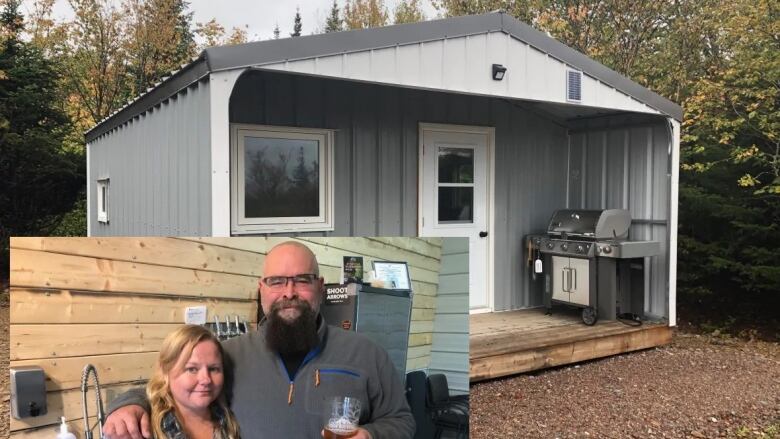Cape Breton tourism operator concerned about short-term rental rules
'I have genuine concerns about the quality of the product'

A Cape Breton owner of tourist accommodations is anxiously waiting to see how Nova Scotia will regulate Airbnb and other operators in the short-term rental market.
The province is finalizing regulations intended to come into effect April 1. They are inresponse to the growth of the sharing economy for accommodations.
Grant Haverstock, owner of Iron Mountain Wilderness Cabins in Whycocomagh, said not all short-term rentals will fall under the regulations and that could hurt the province's reputation with tourists.
"I have genuine concerns about the quality of the product," he said.
Under proposed rules, short-term rentals would have to register with the province and, depending on size, could be subject to commercial taxes.
However, Nova Scotia Business Minister Geoff MacLellan said the rules will not apply to people renting out rooms in their primary residence.
Loopholes opening
Haverstock, who only just recently opened his business, said he is not confident the new regulations will level the playing field between full-time operators and previously unregulated accommodations.
"Maybe your not-so-honest Average Joe that has five bedrooms is saying he has two for rent, but in reality he has three, so he's never ever fully booked," he said.
"It opens a lot of loopholes for people."
Haverstock also said he is not opposed to Airbnb or other companies that make it convenient for tourists to find accommodations, but those operators haven't been subject to the same regulations, amounting to unfair competition.
MacLellan agreed, saying outdated legislation created red tape and cost legitimate businesses financially.
That law is being repealed and new regulations will apply to most operators, the minister said, adding the problem is not with people taking a few tourists into their own homes.
"It's never been about the primary residencies that are the focal points here," MacLellan said.
"It's about multiple landowners, multiple dwelling owners, developers who are using this to avoid the normal regulations."

Recently, a company offering accommodations at what it calls a "boutique hotel" in downtown Halifax was found to be offering a number of apartments in a building that it rents as tourist accommodations.
The new registry will help ensure most rental properties meet regulations, MacLellan said, because Airbnb and other companies will also have to register with the province and provide records of their accommodations.
Most of the changes have come about at the request of the tourism industry itself, MacLellan said.
Darlene Grant Fiander, president of the Tourism Industry Association of Nova Scotia, said the new regulations won't be perfect, but they'll be a big first step.
"The fact that the short-term rental industry now will have requirements that didn't exist before is the big part for us," she said.
"Compared to where we were a year ago, all of a sudden there are a set of rules that will apply to the majority of people. The alternative is we go back to what we had, which was a massive underground economy."
MORE TOP STORIES












_(720p).jpg)


 OFFICIAL HD MUSIC VIDEO.jpg)
.jpg)



























































































